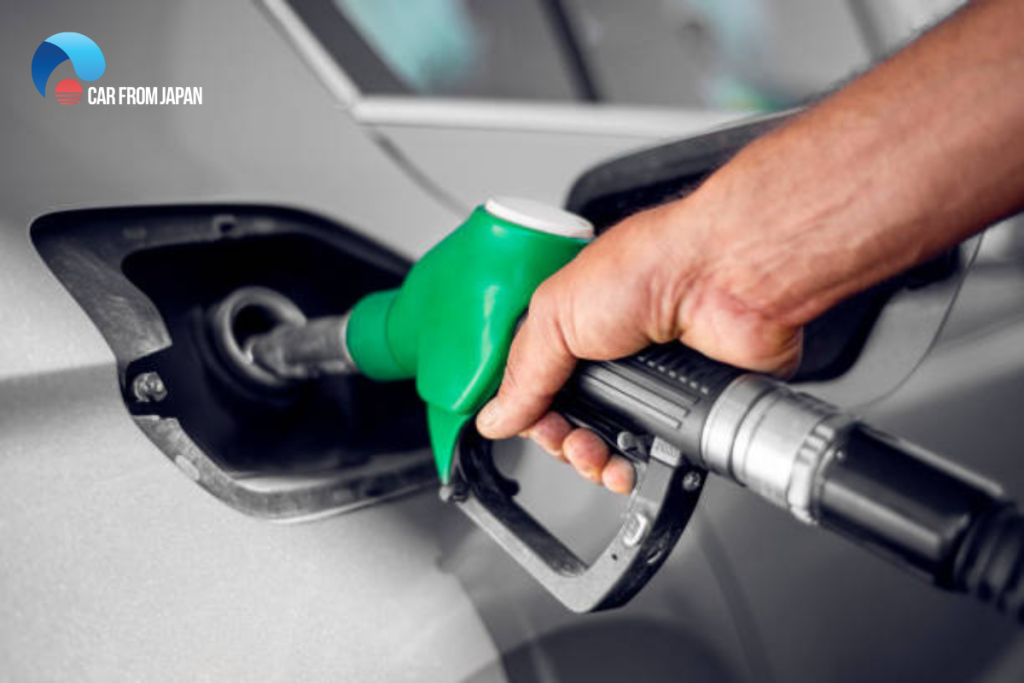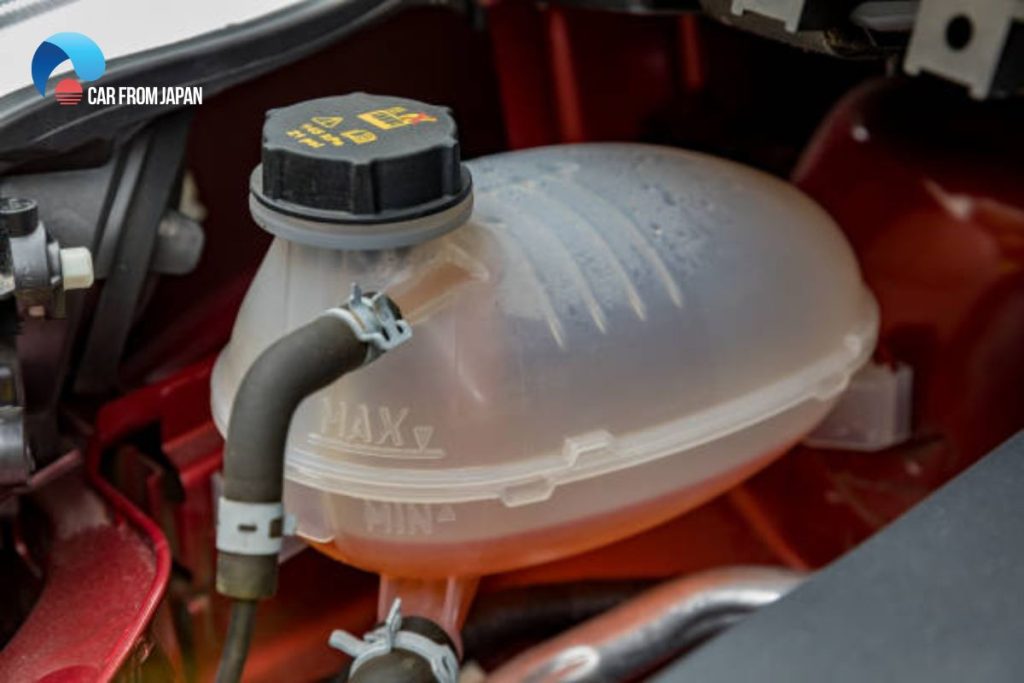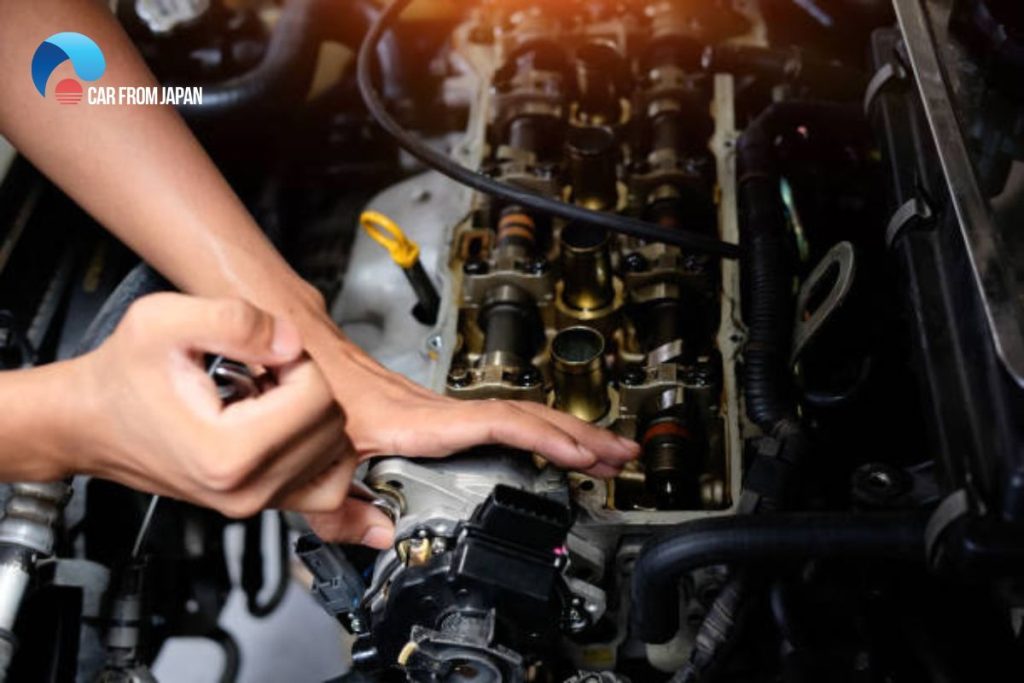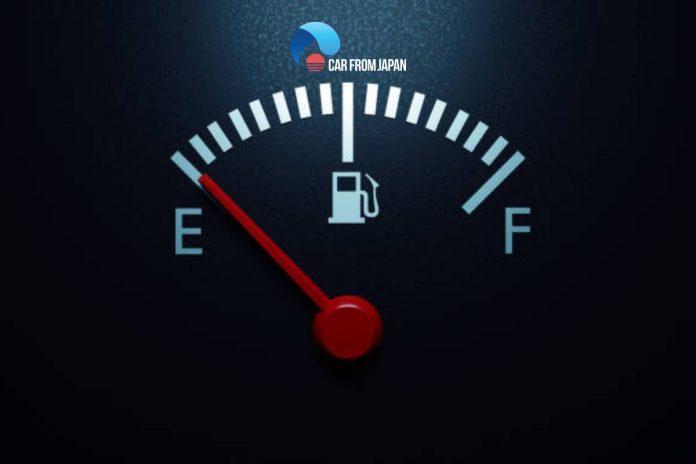Did you know that without regular and proper maintenance, a vehicle can burn up to 30 percent more fuel? Many things can lead to bad fuel economy, including both worn and faulty parts and your driving habits, and remember that poor mileage also means an inefficient engine. Learn the most common excessive fuel consumption causes today and how to fix these problems to achieve optimal fuel efficiency and maximize your engine’s performance and lifespan.
Contents
Excessive Fuel Consumption Causes: The Way You Drive
Before moving on to potentially worn or faulty parts in your vehicle that are causing poor fuel economy, you should do a quick check to see if you have any of the following bad driving habits. Your precious vehicle deserves proper handling, so start changing your driving habits today to maximize its lifespan and enjoy many smoother, trouble-free rides.
Driving with the AC “ON”
If you are into a habit of driving with the AC “ON,” the fuel consumption would soar to heights. Have a check on how frequently you are using the car’s air conditioner system.
The AC is known to amplify the load on the engine, thus is one of the most common high fuel consumption. The same goes for a car heater! Read through maintenance tips to know more on car heaters and fuel consumption concepts.
Sometimes AC use can be better for fuel consumption. This is when you are driving at a speed of 80 km/hr or more, as the open windows are liable to produce aerodynamic drag.
The right thing to do is open windows for a few minutes after you start driving, before turning the AC on. Such a step would cool down the car a bit, thus better fuel economy. Another tip is to use air vents to circulate air instead of air conditioning.

Heavy load in the trunk
Sometimes the fault is not in the mechanical block, but in the load that your car is carrying. If you are fond of traveling long distances, you must have a load of things in your car. That may sound convenient, but you are indirectly increasing the fuel consumption. When you seek fuel economy, reducing the extra weight is a recommended option.
You could also do away with the roof rack or, aptly the carrier if you do not use it much. Clear out your vehicle by removing unnecessary stuff so that the load can be lessened to an extent. Once done, you’ll magically notice a change in the amount of fuel consumption.
When you put on the wrong gears
If you are the owner of a manual transmission car, there are chances of utilizing excessive fuel. This occurs more often when you are an amateur driver. Assume, you have put on the 2nd gear and moving at a 50km/hr speed. That, in turn, would demand more power to make a move, thus more fuel consumption.
In simple words, if you drive with a smaller gear and the speed requirement is higher, the fuel would be overly used. The key to reducing fuel consumption is synchronizing the speed with the gear changes and accelerating to a limit.
Poor driving habits
Cars use the most fuel during initial acceleration, so if your trip is short or involves a lot of stops then you will inevitably use more fuel. In addition, aggressive driving where you accelerate hard and brake late causes you to flood the engine with extra fuel and therefore use more.
Excessive idling
Idling eats fuel. Turn your engine off if you are going to be stopped in traffic for 15 seconds or longer.
Speed
Gas mileage decreases rapidly above 60 miles per hour, so observe the speed limit and unless it is safe and necessary to do so, like when you’re on a highway, there is no need to drive too fast.
Excessive Fuel Consumption Causes: Faulty Parts & Improper Maintenance
Fuel is needed to keep the car going. A vehicle that consumes minimal fuel is an ideal one. Contrary to the situation, sometimes cars tend to consume excessive fuel, making them “fuel hungry.” Read on, to know why that happens.
Defective engine block
The first thing to look into is the engine. This block could be tuned inappropriately, or in case you have skipped a pending service, fuel economy is liable to suffer. Talking specifically of petrol engines, when one neglects the replacement of worn-out spark plugs, air cleaner equipment, or fuel filters, fuel consumption would increase.
If the engine happens to be a diesel one, and the fuel injectors or the air filters are clogged, fuel consumption would increase exponentially. The two components are essential elements that contribute towards burning the fuel, and if they clog, excessive fuel consumption would be witnessed.
Under-inflated tires
Regular tire inspection and proper inflation sound simple enough, yet is a maintenance job that many car owners overlook. Under-inflated or soft tires are one of the most common excessive fuel consumption causes, and your tire pressure should be the second thing to inspect when you are experiencing poor fuel economy.
Maintaining appropriate inflation will ensure your car will not need to work extra hard to make up for under-inflated tires, which impede your vehicle from achieving the speed it should.
Keeping your car tires properly inflated is an easy maintenance chore that’s vital to your safety. Under-inflated tires build up excess heat as you drive, which can result in premature tire failure. With too little air pressure, tires can also wear faster and unevenly, and negatively impact the vehicle’s braking and handling.
To help maintain tires in top condition, use a tire-pressure gauge to check the pressure of your tires at least once a month and before starting on any long trip. For an accurate read, make sure the car has been parked for three or more hours before checking the tire pressure. This handy device is something you will get of lot of uses from, plus they are not expensive, so invest in one.
Dragging brakes
You might be wondering what brakes have to do with fuel efficiency. Brakes are important not just for stopping, but also for the overall efficiency of your vehicle.
Brake problems can increase the rolling resistance of your vehicle, and increased rolling resistance translates to a harder-working engine. Anything that makes your engine work harder will eat fuel. If something is causing your brake to only partially apply or not fully release, it is hurting your mileage by making your engine work harder.
You are having dragging brakes, or brakes that are not releasing fully if you notice excessive gray dust on wheels and tires, or the accelerator must be depressed farther than usual to achieve normal driving speeds. This is why you must periodically check your brakes just to be sure that everything is properly lubricated to maximize fuel efficiency and of course, safety.
Low coolant

As with all machinery, overheating may spell trouble to efficiency, or worse, permanent damage. To ensure the engine stays at an optimal operating temperature, your car relies on antifreeze or engine coolant. Driving with low coolant could let your engine get overheated and thus run less efficiently, reduce fuel economy, and might even cause serious damage.
So be sure to regularly check the coolant level and top it off if needed. Also, check the condition as well as the operation of the cooling fans if you have electric fans to make sure the cooling system is working properly.
Wrong oil viscosity
Insufficient oil levels and/or wrong oil are common excessive fuel consumption causes. If you find that it’s low, top it off to the proper level and recheck your MPG.
Another thing to consider is changing your oil. Fresh oil lubricates better than old oil. As a result, your engine won’t have to work as hard to do its job.
Something else to consider is the type of oil that you are using, which can also affect your gas mileage up to 12%. You want to use motor oils that are high in reducing friction. Either use a synthetic oil or the oil that the car’s manual recommends.
Synthetic oil has better flow characteristics and lubrication ability than conventional oil, and as a result, your engine will run with less resistance when using synthetic oil. However, do take note that synthetic oil can make a worn-out engine worse: you might see more leaks and perhaps even have more engine noise. However, if your engine is in good shape and doesn’t leak, you might consider switching to synthetic for better fuel economy.
Bad oxygen sensors
Having bad oxygen sensors can reduce your gas mileage by up to 10%. The oxygen sensors help maintain the proper mixture of air and fuel, which is strictly required for optimal engine performance. A bad oxygen sensor means deviation in the ratio of air and fuel, and having this off balance will cause the engine to run inefficiently, thus reducing fuel economy.
Dirty air filter
Air filters trap contaminants in a medium made of paper and synthetic fibers. Over time, this filter becomes filled with dirt and debris, thus reducing airflow and preventing the engine from “breathing” properly.
If your engine does not get the amount of air it requires for combustion, it’s not going to be very efficient and needs to work harder. Anything that makes your engine work harder compromises fuel economy. Professionals claim that a very dirty, clogged air filter can reduce fuel economy by as much as 10% in the very worst cases.
While dirty air filters are one of the most common excessive fuel economy, fortunately, the remedy is simple, so do not forget to perform this maintenance job regularly. Air filters need to be cleaned and unclogged so that the engine can work at its peak performance.
Bad fuel injectors
As the name suggests, the fuel injectors are responsible for putting fuel into the engine. Having bad fuel injectors or a leak can cause bad mileage as the engine will not receive enough fuel required for optimal combustion and, thus, will run less efficiently.
Worn or fouled spark plugs
Your engine produces power to run your car by creating combustion, or explosion, inside the combustion chamber, hence the name “internal combustion engine”. To generate such combustion, your spark plugs supply the electrical spark that ignites the air and fuel mixture that is fed into the combustion chamber.
These small but simple plugs create an arc of electricity across two leads which are not touching, but close enough together that electricity can jump the gap between them. Electricity is created by the alternator and transmitted through the spark plug, jumping the gap in the plug’s firing end if the voltage supplied to the plug is high enough.
When a spark plug works correctly, it helps burn fuel efficiently in the combustion cycle. It will use the optimal amount of fuel to generate combustion to create power to run your car. With a functional spark plug and given that everything else works efficiently in harmony, your car can achieve better than average fuel economy.
If you notice a reduction in fuel economy coupled with one or more problems below, it most likely can be attributed to a worn-out spark plug. Like most other components of your engine, spark plugs wear down over time. The primary type of wear here is with the electrode.
If you look at a spark plug, you’ll notice one end is narrow and tapered: this is where the wire connects to it. The other end is bulbous, with a small metal rod coming out of the center, and a metal hook to one side. That center rod is the electrode, where electricity arcs from that to the hook.
Through normal use, the electrode on each spark plug does wear down. Eventually, it becomes so worn that the gap between the two leads begins to widen. As a result, it doesn’t create as much or any electric arc, which has a direct and immediate effect on your engine operation, including a higher possibility of misfiring.
If your plug corrodes to the point where it breaks, it could do serious damage to the interior of your engine cylinder, which leads to an extremely expensive repair to get it fixed.
When the plug is not functioning optimally, it is frequently because the gap between the spark plug electrodes is either too close or too far apart. As for the remedy, many mechanics will take out spark plugs, examine them, and adjust the gap to factory settings as opposed to replacing the spark plug entirely.
In addition, you should also replace the spark plug wires when you get new spark plugs. It’s still a good idea to regularly inspect the wires for any frays, cracks, and even bites since some wires are made from a soy-based material that’s a favorite snack for rodents.
Engine misfiring
Experiencing engine stalling, rough rides, loss of engine power, and unusual smells and noises from your engine? These are common engine misfire symptoms, which happen when one or more of the components necessary for the engine’s combustion deviate from their precise and designated operation. Engine misfiring is also one of the common excessive fuel consumption.

If the engine misfires, it’s typically due to an issue in the ignition system. A misfire is what happens when any one of the three components – the fuel, the oxygen, or the spark is not working at the right time. For instance, if the air-fuel ratio is incorrect, the mixture may not combust at all or may prematurely detonate. Apart from such incorrect timing, the problem can also lie with the mechanical components in the system, such as the cylinder itself.
Engine misfire symptoms should not be ignored because a misfiring engine will underperform and may become damaged over time. Your car will also experience reduced fuel economy and increased emissions as the engine is forced to work harder to compensate for the cylinder(s) that are not working properly. If the combustion process is interrupted, even for a brief moment, it can cause the performance of your engine to suffer.
If you notice your engine misfires, it’s recommended to have a professional inspection right away. Usually, the vehicle can continue running with a misfire in one cylinder, since the others will keep the car in motion. It won’t, however, run normally, and it could become worse over time.
Ignoring the problem for too long can damage the engine parts, such as the catalytic converter and oxygen sensor. Also, the car can lose power and stop in the middle of a busy road.
Many things can cause the engine to misfire. Inspect the following systems and components to find the culprit:
- Check the ignition system
Ignition parts, including spark plugs, ignition wires, and coil packs, wear or corrode over time. They have a specific lifespan and have to be replaced after that time. When any or a couple of these parts start to wear out, there will be a point when the spark plugs don’t get enough electricity to create sparks.
It will start as brief intermittent misfires and become worse over time. However, most of the items in the ignition system are inexpensive and easy to fix.
- Check the fuel system components
If the issue is not with the ignition system, the parts in the fuel system are what you should check next. These components also wear out although at a slower rate. Examine for a clogged fuel filter, dirty fuel injectors, and failing mass airflow sensor or fuel pump. The EGR valve could also be clogged for not cleaning it for a long time. If that is the case, it will allow the exhaust wastage to go into the intake manifold and create an engine misfire. Most of the issues can be solved by cleaning or replacing the problematic part.
- Damaged cylinder walls
A misfiring engine creates popping or sneezing sounds. Sometimes, there is a distinct smell too, which is a mix of gasoline, coolant, and steam. Such a strong odor is a warning sign indicating damaged cylinder walls. You should take the car to a mechanic to inspect the engine as soon as possible.
EGR valve leak
The purpose of the Exhaust Gas Recirculation (EGR) Valve is to reduce emissions. The EGR valve recirculates exhaust generated during the engine’s combustion back into the combustion cycle, thereby reducing the engine’s temperature and lowering the production of poisonous nitrogen oxides.
EGR valves open and close to control the gas flow. Over time, the exhaust builds up a hard and thick wall of carbon, locking the EGR valve in the open or closed position. This will block system passages, thus increasing the engine’s temperature and increasing nitrous oxide emissions.
If the EGR valve does not close at idle or when the engine is cold, it can allow exhaust gases to leak back into the intake manifold, causing the engine to misfire and in turn, lead to poor fuel economy.
Final Thoughts
Taking control of your vehicle’s fuel consumption isn’t just about saving money at the pump; it’s about making conscious choices that benefit both your wallet and the planet.
Remember, those seemingly small factors – underinflated tires, a neglected air filter, or aggressive driving habits – can collectively contribute to a significant drain on your fuel efficiency.
By understanding the intricate web of causes, from worn spark plugs and faulty oxygen sensors to the simple act of carrying unnecessary weight, you empower yourself to make informed decisions.




Good advise there… Thanks
Am asking about psv matatu box using excess diesel